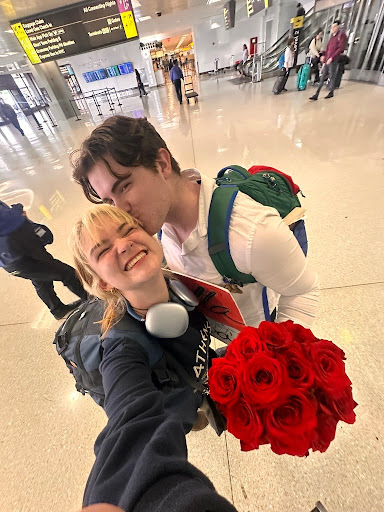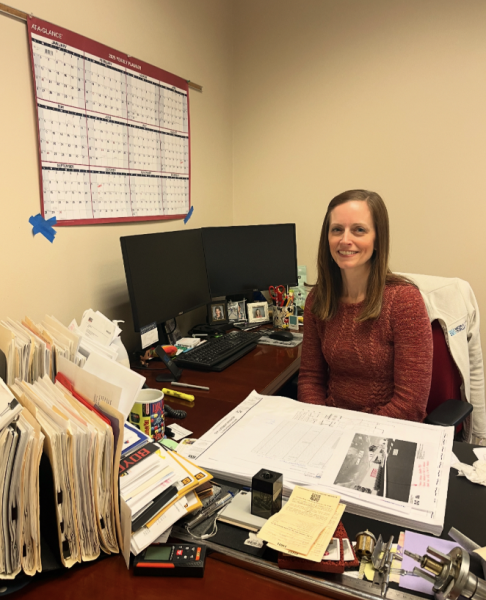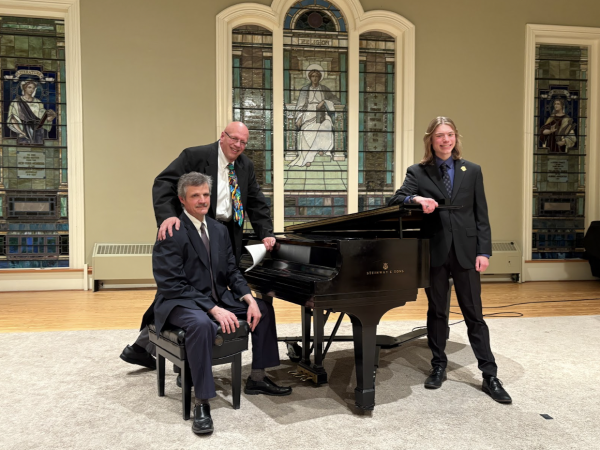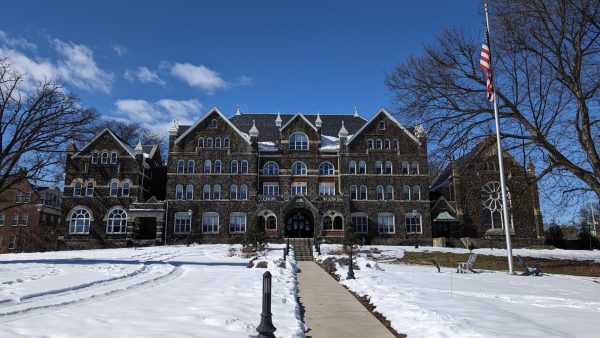MoCo Professor Jeff Csatari Combats Colony Collapse Disorder
Jeff Csatari, Moravian College professor of journalism and executive editor of Galvanized Brands, may have spent $2,500 and sustained 25 bee stings to become a seasoned beekeeper, but he has more than just honey on the brain.
Three years ago, Csatari decided to take a break from his desk job and headed outdoors to become one with nature and help honeybees in the process.
“I was looking for something to do to get me out of the office, and I had learned about Colony Collapse Disorder,” said Csatari.
Over the last 12 years, Colony Collapse Disorder (CCD) has posed a major threat to bees, which are responsible for pollinating 70 out of the 100-crop species that feed 90 percent of the world, according to BBC news. The phenomenon occurs when worker bees disappear from the hive, leaving the queen and larvae behind, according to the Environmental Protection Agency (EPA).
“The first year, I had three hives, and we had 100 pounds of honey in each of the hives,” said Csatari. “For some reason, [the honeybees] left the hive and robber bees came in and stole all the honey. It was very sad. My daughter actually cried when we lost that hive.”
Many experts believe that the decline in the bee population is partly related to honeybee pests, including the varroa mite, Israeli acute paralysis virus, and the gut parasite Nosema. Other probable causes are pesticides that are used on crops that poison honeybees, inadequate forage that leads to malnutrition, and overall immune-suppressing stress, according to the EPA.
“[I] lost two [out of four hives] this year to Colony Collapse and primarily varroa mites,” said Csatari.
Since the rise of CCD, 30 percent of the national bee population has vanished in the United States. The decline has resulted in an estimated monetary loss of $30 billion a year due to the loss of crops, according to Global Research.
“Beekeepers like myself are trying to get a handle on the mite population,” said Csatari. “In the late summer, we examine our bees and look for the mites on the back of the bees. If we find a lot of mites we apply a pesticide that doesn’t hurt the honey or the hive and sometimes we can save the bees that way.”
Some other ways that beekeepers and other environmental enthusiasts combat CCD is by planting a garden, cutting the use of chemicals and toxins, while also choosing holistic and organic options, according to One Green Planet.
For many beekeepers, like Csatari, the hobby has evolved into a passion that is focused on raising awareness and trying to resolve the plight of bees.
The hobby has allowed Csatari to become a part of a community of beekeepers through taking a class at Lehigh Carbon Community College and becoming a part of the Lehigh Valley Beekeepers Club, which helps teach the next generation of beekeepers.
“Colony Collapse Disorder hasn’t been as strong as it was 10 years ago,” said Csatari. “[Experts] think that it might have something to do with the fact that more beekeepers are becoming beekeepers. We’re delivering more hives to the natural world.”
Since 2006-2007, the number of hives that do not survive over the winter months has decreased from 28.7 percent to only 23.1 percent in 2014-2015, according to the EPA.
Not only does beekeeping help the bees but it can also be a stress reliever for those looking to stretch their legs after a long day at a desk job, said Csatari.
“One of the things I love about beekeeping is that I can get outside into the woods by myself,” said Csatari. “I take a walk down the dirt path and get away from everything.”
In the summer, Csatari visits his bee hives every week on an organic farm on Bridle Path Road in Bethlehem, Pennsylvania. He tends to the bees by feeding them sugar water and collecting their honey.
“When you are facing 60,000 bees that are coming at you, you can’t think about your worries, you can’t think about the job, the deadlines, [or] the kids,” said Csatari. “All you are thinking about is not getting stung and what you are going to do with your bees. It’s a great stress reliever, it’s a great passion, it gives me a lot of pleasure, it takes me out of my element.”











